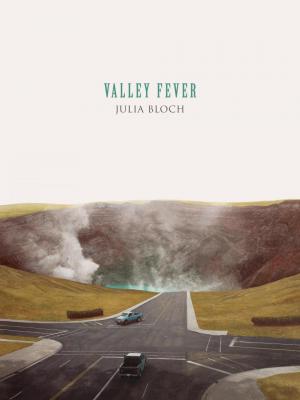Valley Fever
“Valley Fever continues the strange, unsettling pilgrimage Julia Bloch began in her first full-length book, the Lambda finalist Letters to Kelly Clarkson. It’s the Central Valley of Steinbeck and Cherríe Moraga, altered here by Bloch’s own quizzical, dreamy, poetic line and her vision of history as the thing that pins us down at all times, even when we feel most free. California landscape infects all who set foot in it: “Darkening stems / of the lower plants— / you’ll find me listening / for them to collapse in this heat.” Bloch’s “I” is intrepid, valiant even, but even she quails at the beauty that assails her, at the onset of a “fever” at once romantic and bleak, “because most people are not adults.” With her apothegms, her “place-based lie,” and her subject position (as skeptical as it is warm-hearted), Julia Bloch enacts the restless, guilty implicatee as well as, or better than, any American poet.” —Kevin Killian
“Valley Fever manages to infuse its language with political urgency in a manner that maintains subtlety and and avoids preaching. This is important poetry that both entertains and resonates with contemporary culture. I am eager to discover what Bloch will write next.” —Becky Peterson, The Rumpus
“In the procedure of Valley Fever, Bloch destablizes the center of many poems, a formal choice that enhances the tension between context and concepts.” —Heather Bowlan, make/shift
“Bloch’s poems refuse the possibility of comprehensive documentation.” —Davy Knittle, Iowa Review

 Department of English
Department of English
